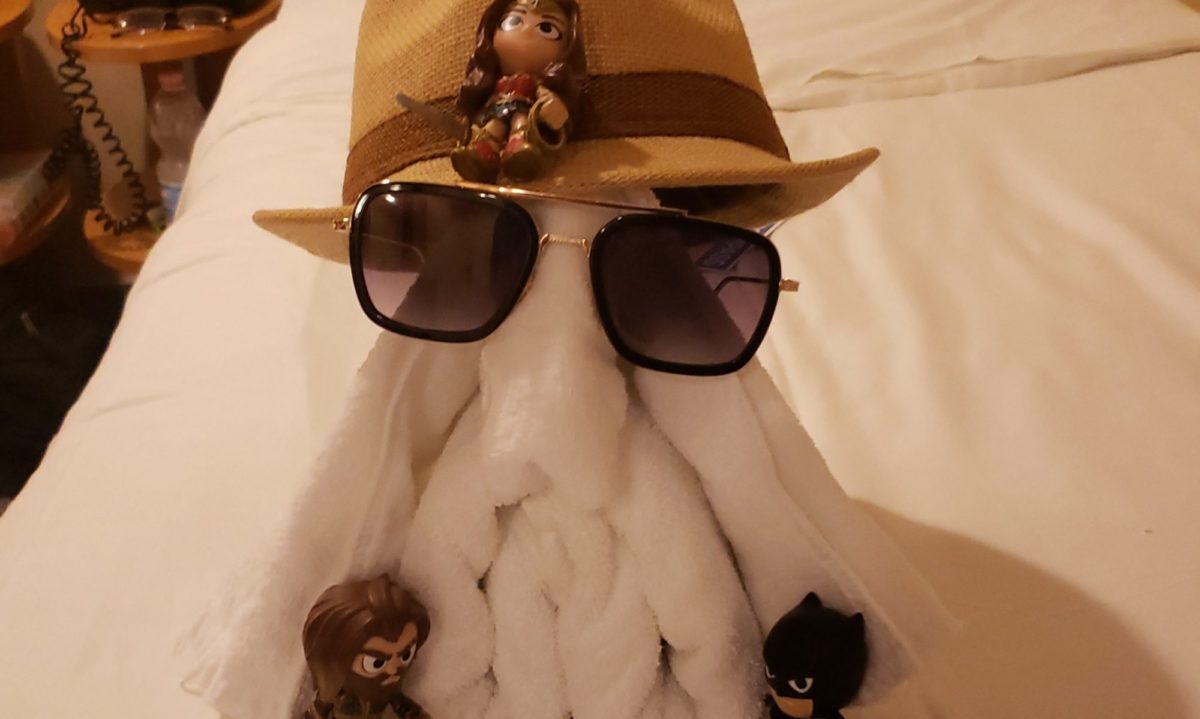So… been blogging about TV a lot, haven’t I?
Yeah. Yeah.
Well, I’m not exactly going to stop, but let’s mix it up a little. So, how long has it been since the last time I reviewed one of my old plays? Eight months and a few days? Well, better than last time.
When last we left this series, I’d just written one of, if not the funniest thing I’d ever written. So what to do next? Simple.
Abandon comedy altogether.
Ladies and gentlemen, this is Lost Time.
What’s it about?
Years ago, Gabrielle Silverman was the victim of a horrifically violent attack. (Yep, apparently I was done with funny for a while.) After some time in the hospital, she fled Calgary (I was experimenting with setting plays where I lived… hi, hypothetical unknown reader, I live in Calgary, Alberta), leaving behind her best friend, Hal, and her boyfriend, Hal’s older brother Donny… who was secretly in love with Gabrielle as well.
Following the attack, Gabrielle went into seclusion, Donny got lost in his own mind, and Hal had to try to hold everything together. Now, Gabrielle is finally coming home, setting the stage for a reunion between her, her ex-boyfriend, her best friend who’s hiding secrets… and Jackie, one of her assailants. It’s a story of love, loss, violence, trauma, recovery, addiction, faith, antisemitism, the Jewish ten days of repentance, revenge, and forgiveness… all written by a white male gentile agnostic whose biggest success to that point involved men in togas spraying each other with oversized water guns.
Should be fine.
So as you can imagine, the people who sat down to read the early drafts, expecting to laugh, were in for a bit of a surprise.
So why’d that happen?
Like Salvage before it, this one came from a dream. My dream was focused around an absence. The absence of a woman, a woman who became Gabrielle. All the key aspects of Gabrielle’s past were there: the woman was my brother’s first girlfriend, who I’d also loved in my awkward, ineffective, bad-at-saying-it way (…ladies). Like Gabrielle, this woman (who, let’s be clear, does not exist) suffered a horrific assault as a teen and disappeared. She never appeared in my dream, just the void left in her place. Her parents, sleepwalking through life. Her empty bedroom, which I remembered the exact way to parkour into from when I was in high school (I could not parkour in high school, don’t let my subconscious tell you different). And above all of that, the way her absence weighed on me and my brother. No matter what the dream tried to become (at one point I was a Mountie, and another Doctor Who, and yes, I made that a line in the show), the absence of this woman haunted everything.
When a dream triggers an emotional response that strong, I feel a need to capture it. And so Lost Time was born.
How’d it turn out?
…Why is this Hal’s story?
Overall it seems… fine. Decent. The characters are well realized, the climax is solid, I think the basic premise is engaging. It just has two issues. First, it’s incredibly talky. Incredibly talky. Most of the show is people talking about things that happened years earlier, rather than anything happening now. And secondly, I reiterate…
Why is Hal the main character?
I mean I think the answer is “The Hal role was the POV character in the dream, and it was just easier to make him the POV character in the play.” That’s the obvious answer, but it’s not a good answer. Let’s be real, Gabrielle is the one on a journey here. She instantly becomes the most interesting thing in every scene she’s in, and not making her the focus of the story was folly.
It can still go the way it went, sure, I don’t think the overall plot needs to change. But this should be Gabrielle’s story from the word go.
Would you stage it again?
Not as is. As you may have noticed, I’ve discovered kind of a major structural flaw here. Overall I think maybe, but the central character would need to shift before I sent it back out into the world. And it could also use some further digging into Jackie, the ex-thug who turned his back on his friends when he realized what they were. But why did he end up with them to begin with? Why did he go along with the violence and the crime as long as he did? As Dylan Marron puts it, hurt people hurt people. I kind of skimmed over what, exactly, pushed Jackie to join a gang that became white pride thugs without him, born and raised Jewish, noticing.
Overall, it might be worth trying to brush up at some point, because I think this world could use some more discussion of forgiveness and redemption.
Repeated theme alert:
- Let’s sit and exchange backstories for twenty minutes like that doesn’t kill the pacing! That describes more of this show than it doesn’t. Most of the show’s action took place in the past.
- Fun with pop culture: There’s a reference to not knowing if a character’s trauma is from being hugged too much or not enough. Borrowed that from Con Air.
- Not a repeated theme, but a repeated character… Theresa from Quarter Century is back as Hal and Donny’s therapist and a friend to Jackie. Which means she’s been in two of my plays but has somehow yet to have her own plot.
- The phrase “Fair point” is used so often that nine years later I’m still hearing about it. It’s become a stage in my editing process: look for the “fair point,” the phrase that gets over used.
